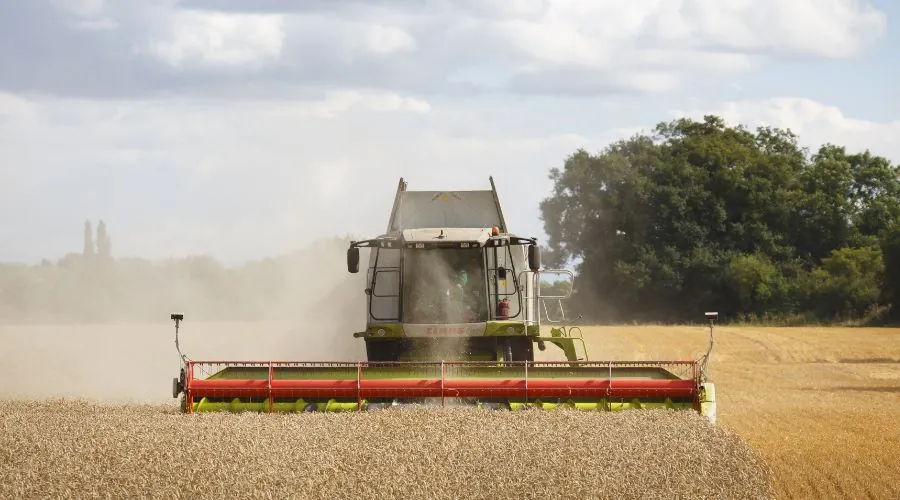England has suffered what has been described as its second worst harvest on record – with fears growing for next year – after heavy rain last winter hit production of key crops including wheat and oats.
Available reports show that the cold, damp weather, stretching from last autumn through this spring and early summer, has hit the rapidly developing UK wine industry particularly hard, with producers saying harvests are down by between 75% and a third, depending on the region.
On staple crops, England’s wheat haul is estimated to be 10m tonnes, or 21%, down on 2023, according to analysis of the latest government data by the Energy and Climate Intelligence Unit (ECIU). Winter barley was 26% down on last year, and the winter oilseed rape harvest was down 32%, in data released by the Department for Environment Food and Rural Affairs on Thursday.
The ECIU estimates that farmers could lose £600m on five key crops – wheat, winter and spring barley, oats and oilseed rape – where production was down 15% in total.
Tom Lancaster, a land, food and farming analyst at the ECIU, said: “This year’s harvest was a shocker, and climate change is to blame. While shoppers have been partly insulated by imports picking up some of the slack, Britain’s farmers have borne the brunt of the second worst harvest on record.
Read also: Report: Nearly 3.3 million without power as category 3 storm hits Florida
“It is clear that climate change is the biggest threat to UK food security. And these impacts are only going to get worse until we reduce our greenhouse gas emissions.”
He said record rains in September got the new season off to a poor start, forcing farmers to hold off on planting in some parts of the country and losing out on the more productive winter harvest by having to wait until the spring.
Colin Chappell, an arable farmer in Lincolnshire, said: “We are now on a knife-edge. Last week we had almost two inches of rain within 36 hours here and we’re not the worst off. Some farms in southern England have lost their crops for the second year in a row. Many will now be relying on spring wheat once again this year, which only produces about half as much as winter wheat.
“We’re getting into a situation where autumn planting is becoming unviable due to flooding and spring planting is risky because of drought.”
Story was adapted from the Guardian.
